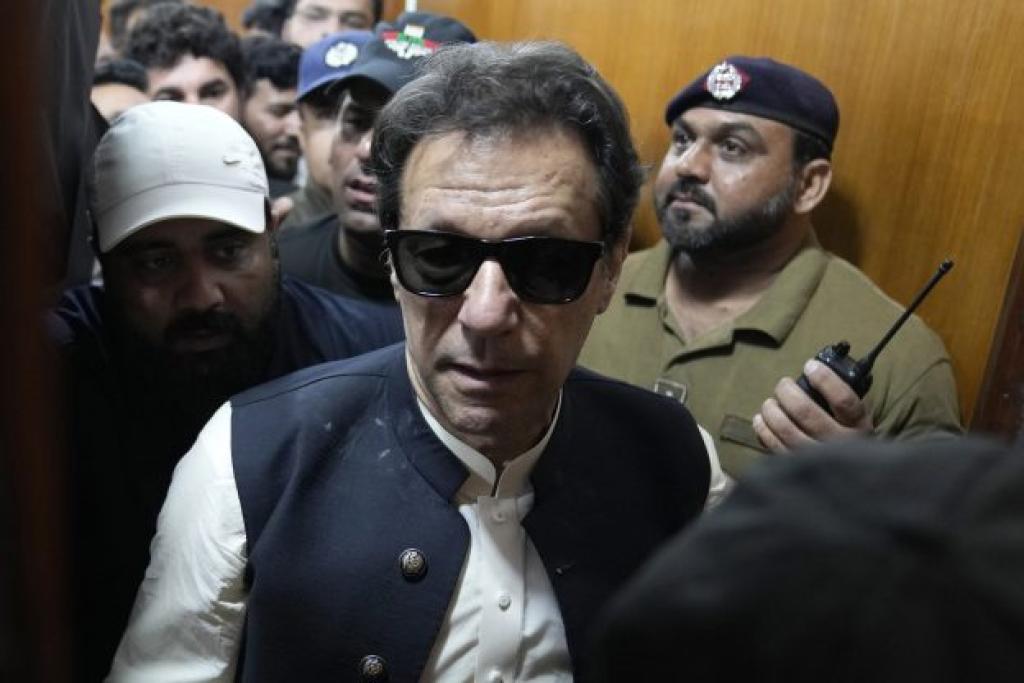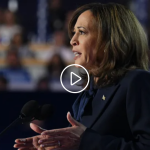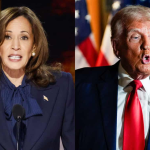The Cipher Case and Its Impact on Imran Khan
In a case that has drawn significant attention, Imran Khan was convicted in January 2023 of treason over the "cipher case." The incident involved accusations of Khan exposing state secrets by brandishing a confidential document during a protest rally. The document is believed to be diplomatic correspondence between the Pakistani ambassador to Washington and the Foreign Ministry in Islamabad. Khan asserted that the document was evidence of a conspiracy against him, orchestrated by the U.S. in collaboration with Pakistan's military and government. While American and Pakistani officials denied the allegations, the case significantly impacted Khan's political career.
The Islamabad High Court's recent decision to acquit Khan in the cipher case has been a pivotal development. While the court's order to set aside the January judgment is a victory for Khan, it does not lead to his immediate release, as he remains incarcerated on other charges. This acquittal, though symbolic, highlights the complexities of Pakistan's legal and political systems and the challenges Khan faces as a prominent opposition figure.
The Legal Maze Surrounding Imran Khan
Imran Khan's legal battles are far from over. Despite the acquittal in the cipher case, Khan faces numerous other charges, which keep him behind bars. With over 150 lawsuits filed against him since his ouster in 2022, Khan's legal troubles are extensive. His conviction in four cases and pending trials add layers of complexity to his situation, making it challenging for him to mount a full-fledged political comeback.
The ongoing legal proceedings have had a profound impact on Khan's political party, the Pakistan Tehreek-e-Insaf (PTI). The government's crackdown on Khan's supporters and party has intensified, affecting the PTI's ability to operate effectively. Despite these obstacles, the PTI has shown resilience, as seen in the February 2024 general election, where candidates affiliated with the party won more seats than any other single party. However, the PTI fell short of a majority and remains outside the governing coalition.
The Significance of the Acquittal for Pakistan's Politics
The Islamabad High Court's decision to acquit Imran Khan in the cipher case carries significant implications for Pakistan's political landscape. While Khan's acquittal does not immediately alter his incarceration status, it sends a message about the judiciary's role in Pakistan's complex political environment. The decision to acquit Khan could be viewed as a reflection of the judiciary's independence or resilience in the face of political pressures.
For Khan's supporters, the acquittal is a beacon of hope and a rallying point for continued political engagement. It strengthens Khan's narrative of being wrongfully targeted by powerful interests within Pakistan, fueling further political activism among his base. For Khan's opponents, the acquittal represents a potential resurgence of a formidable political adversary, necessitating strategic countermeasures.
The Challenges Ahead for Imran Khan and PTI
Imran Khan and his party, the PTI, face a myriad of challenges as they seek to regain political influence in Pakistan. The government's measures against the PTI, including stripping the party of its cricket bat symbol and preventing political rallies, underscore the difficulties the party faces in mobilizing support. Despite these challenges, the PTI's performance in the recent general election demonstrates its enduring appeal and resilience.
Khan's ability to lead the PTI effectively while incarcerated remains a critical factor in the party's future. The PTI's leadership will need to devise strategies to maintain momentum, galvanize supporters, and address internal divisions. Additionally, navigating the legal landscape and ensuring fair representation in the judiciary will be essential for Khan and the PTI to maintain their political foothold.
Understanding the Broader Context of Imran Khan's Acquittal
Imran Khan's acquittal occurs within a broader context of Pakistan's political dynamics, where power struggles, military influence, and shifting alliances are integral components. Khan's narrative of foreign conspiracies and alleged military involvement in his ouster resonates with many Pakistanis, contributing to his continued popularity as an opposition leader. The acquittal may reinforce perceptions of Khan as a victim of political machinations, further polarizing the political landscape.
The role of the military and intelligence agencies in shaping Pakistan's political trajectory cannot be underestimated. Khan's claims of their involvement in his removal highlight the intricate interplay between civilian and military authorities in the country. Understanding these dynamics is crucial for comprehending the complexities of Pakistan's political environment and the challenges faced by political leaders like Khan.
The International Perspective on Imran Khan's Legal Battles
Imran Khan's acquittal and ongoing legal battles have attracted international attention, shedding light on Pakistan's political climate and governance. The international community closely monitors developments in Pakistan, given its strategic significance and historical ties with various countries. Khan's claims of foreign conspiracy have implications for Pakistan's diplomatic relations, particularly with the United States, making it essential to consider the international dimension of his legal and political struggles.
For political analysts and Pakistan watchers worldwide, Khan's legal battles provide insights into the broader geopolitical context and its impact on domestic politics. Understanding the interplay between internal dynamics and external influences is crucial for assessing Pakistan's political stability and prospects for democratic governance.
The Future of Imran Khan as a Political Leader
Imran Khan's future as a political leader hinges on several factors, including the outcomes of his ongoing legal battles, his ability to galvanize public support, and the PTI's organizational strength. Khan's charisma, populist appeal, and reputation as a reformer continue to resonate with many Pakistanis, positioning him as a significant political force.
However, Khan's path to political resurgence is fraught with challenges. Navigating the legal intricacies, countering government measures, and building alliances will be essential for Khan to reclaim political power. Additionally, he must address internal party dynamics and foster unity within the PTI to maintain its relevance in Pakistan's evolving political landscape.
The Ripple Effects on Pakistan's Political Landscape
Imran Khan's legal battles and political trajectory have ripple effects on Pakistan's broader political landscape. The challenges he faces underscore the complexities of governance, power dynamics, and institutional integrity in the country. Khan's story serves as a lens through which to examine the strengths and weaknesses of Pakistan's political system and the role of key stakeholders in shaping its future.
For news enthusiasts and political analysts, Khan's legal and political saga offers valuable insights into the challenges of democracy in Pakistan. Understanding these dynamics is crucial for assessing the prospects for reform, stability, and democratic governance in the country.
Conclusion and Next Steps
In conclusion, Imran Khan's acquittal in the cipher case marks a significant moment in his ongoing legal and political odyssey. While the acquittal does not result in his immediate release, it underscores the complexities of Pakistan's legal and political systems and the challenges Khan faces as a prominent opposition leader. For news enthusiasts, political analysts, and Pakistan watchers, Khan's story offers valuable insights into the intricacies of governance, power dynamics, and the prospects for democratic reform in Pakistan.
As Khan and the PTI continue their political journey, the international community will closely monitor developments in Pakistan. Understanding the interplay between internal and external factors is crucial for comprehending Pakistan's political trajectory and its implications for regional and global dynamics.







